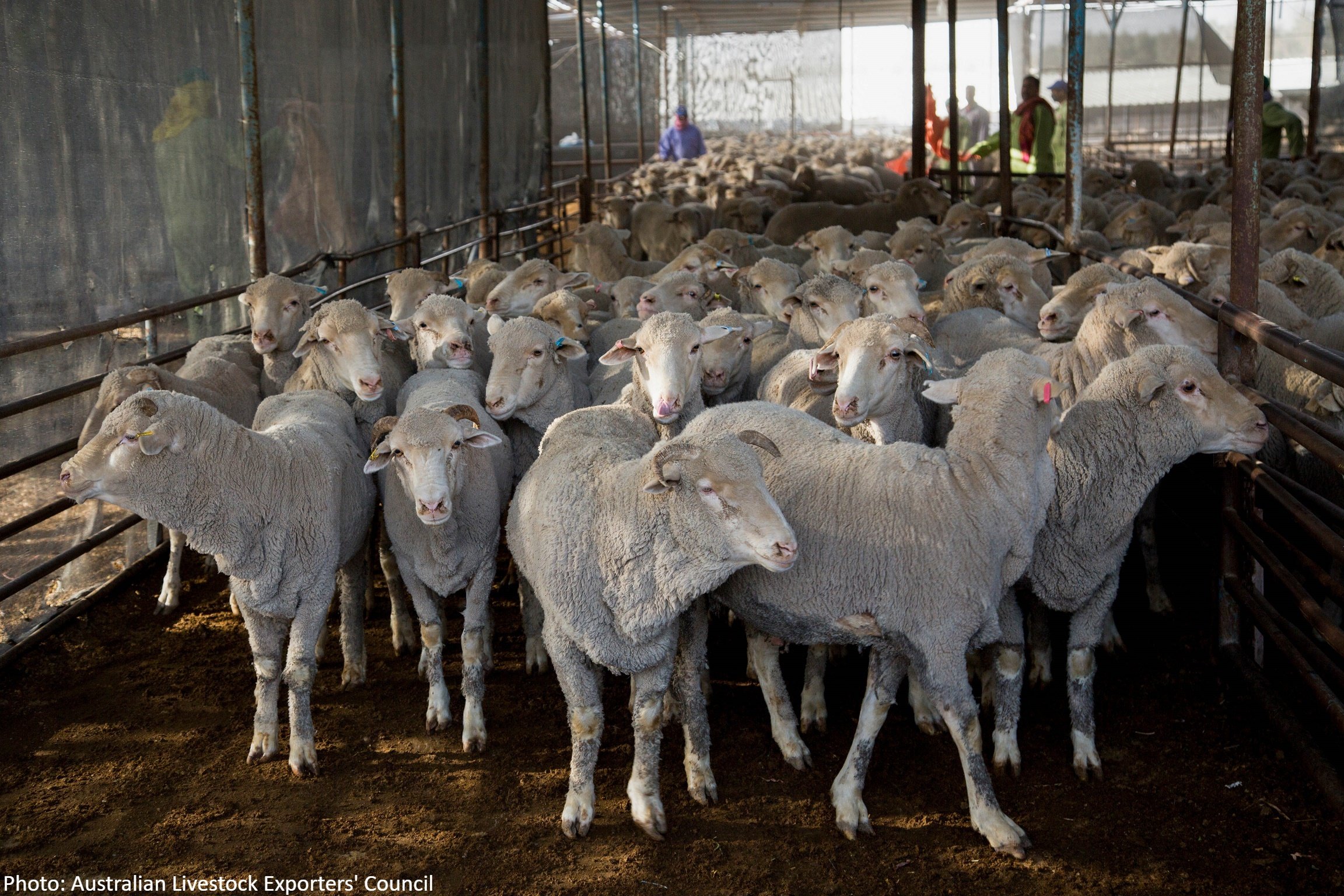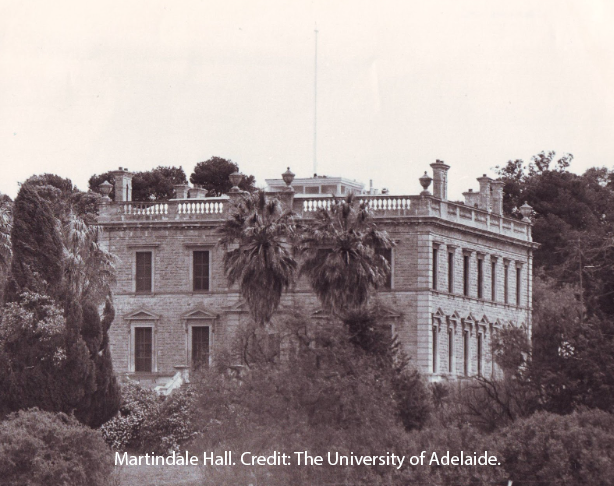 Farmers are losing confidence in a government that is "marching to the beat of the activists' drum", with 23 industry groups making that clear in a letter addressed to Prime Minister Anthony Albanese on Thursday.
Farmers are losing confidence in a government that is "marching to the beat of the activists' drum", with 23 industry groups making that clear in a letter addressed to Prime Minister Anthony Albanese on Thursday.
Expressing their frustration and warning of irreversible harm to the agricultural sector, the letter called on the Prime Minister and Agriculture Minister Murray Watt to reverse its policy on the phase out of live sheep by sea, with the groups saying the ban was pointless, expensive and disruptive.
National Farmers’ Federation president Fiona Simson said the ban risked upsetting Australia’s $11.1 billion trade partnerships in the Middle East.
“Australia is working hard to diversify its trading partnerships, particularly for agricultural commodities. Middle Eastern countries are a critical and growing part of that.
“The message we’ve heard from these trading partners is that pulling the rug out from under their food supply will have broader impacts on our relationship. We saw that of course with Indonesia in 2011.
“We’re worried that we’re sleepwalking into another diplomatic gaffe in the Middle East and the right hand doesn’t know what the left hand is doing.
“They’re marching to the beat of the activists’ drum, and we need the Prime Minister to pull back and look at the bigger picture here before it’s too late.”
Australian Livestock Exporters’ Council CEO Mark Harvey-Sutton echoed the comments to reverse the policy.
“We have said since it was announced that this policy was bad and would be a red line for agriculture,” he said.
“It puts an activist agenda ahead of farmers and people working to support Australian agriculture and it has already created damage to our trading relationships with several countries who rely on us for food security.
“The level of investment in Australia from foreign countries is underpinned by our ability to meet their needs for food.
"To damage longstanding relationships for the sake of crumbs from the activists' table smacks of short-term thinking."
On the ground, Kojonup wool grower and sheep farmer Steve McGuire said that the policy was already undermining the ability to plan and was creating further stress at a time when low prices are already causing pain.
“We’re already witnessing the implosion of the sheep industry here. Livelihoods are being lost just due to the uncertainty," Mr McGuire said.
"This isn’t a planned transition, it’s a socio-economic disaster.
“This policy is a net loss. No one will be better off: not the sheep, which have the best welfare standards in the world, not the industry and certainly not farmers.
“The Albanese Government needs to do the decent thing and reverse the policy immediately.”
The letter sent to Anthony Albanese about the phase out of live sheep export by sea read as follows:
Dear Prime Minister,
Live export stakeholders are losing confidence in your government’s ability to work in their best interests and those of the Australian agriculture sector, rural and regional communities that depend on the live sheep export trade. The decision to phase out the live export of sheep by sea will not only cause irreversible harm to our sector but also to Australia’s trade and diplomatic partnerships in the Middle East.
On 1 March 2023 we wrote to Senator the Hon Murray Watt, Minister for Agriculture, advising that the commitment to phase out live sheep exports was a red line issue for the entire agricultural sector and the only outcome that would be acceptable is a reversal of the policy. This letter was a request for your Government to listen – but we have not been heard.
We urge you to reconsider.
Today, Australia are the world leaders in the export of live sheep by sea. Banning sheep live exports from Australia will alter supply dynamics, however it will not change global demand. To meet religious and cultural requirements, markets will continue to source live sheep from countries that do not have the same animal welfare standards, so if the decision is being made on the grounds of improving animal welfare, the ban will be an abject failure.
Your Governments appointed Independent panel Chair, Mr Phillip Glyde, is quoted as saying: “…clearly this sort of policy change will adversely affect industry, so how do we make the best of it.”
The simple fact is a phase out will cause significant damage that was not even remotely considered when the Australian Labor Party developed the policy to phase out the live export of sheep by sea.
While the panel has only been asked to provide recommendations on how to implement the policy, Mr Glyde’s comments highlight the sheer magnitude of adverse effects that the implementation of your government’s policy will have.
The stated and likely reversal of this decision by the conservative side of politics should they gain government, will make the ban not only pointless, but a very expensive and disruptive process for no gain.
Middle Eastern countries reliant on Australian live sheep exports are critical to diversify Australia’s trading partnerships. They are crucial investors in Australia’s future prosperity, and we have seen a twenty-fold increase in two-way investment in the past 20 years. The phase out policy will jeopardise trade deals Australia is pursuing in the region and will erode our reputation as a reliable economic partner.
Domestically the fallout associated with the policy announcement is already occurring with a devastating collapse in producer confidence and the sheep industry – not just in Western Australia, but nationally. National rural confidence has recently dropped to one of the lowest levels in two decades. More than half of Australian producers expect the agricultural economy to worsen over the next 12 months. Sustainable sheep and wool industries are the cornerstone of many regional economies. If people are forced to leave these industries, regional communities will be devastated.
This policy will cause harm. It will hurt Australian families and damage Australia’s international standing as a reliable supplier of food and fibre and a trusted trading partner.
We simply cannot support or reconcile logic without scientific basis of the phase out of a legitimate world-leading industry for purely domestic political purposes, and therefore cannot accept anything less than a policy reversal.
No doubt there will be activist groups and non-farming interests urging you to stay the course on this policy. An opportunity exists for you to do the right thing and work with Australian agriculture, not against it - as this is the choice you will be making.
The Australian Government must support Australia’s global leadership on animal welfare and at the same time reinforce the point that long standing international friendships in the national interests are important.
We are the voices of Australian Agriculture. We need you and your Government to listen to us.
 Results
Results
